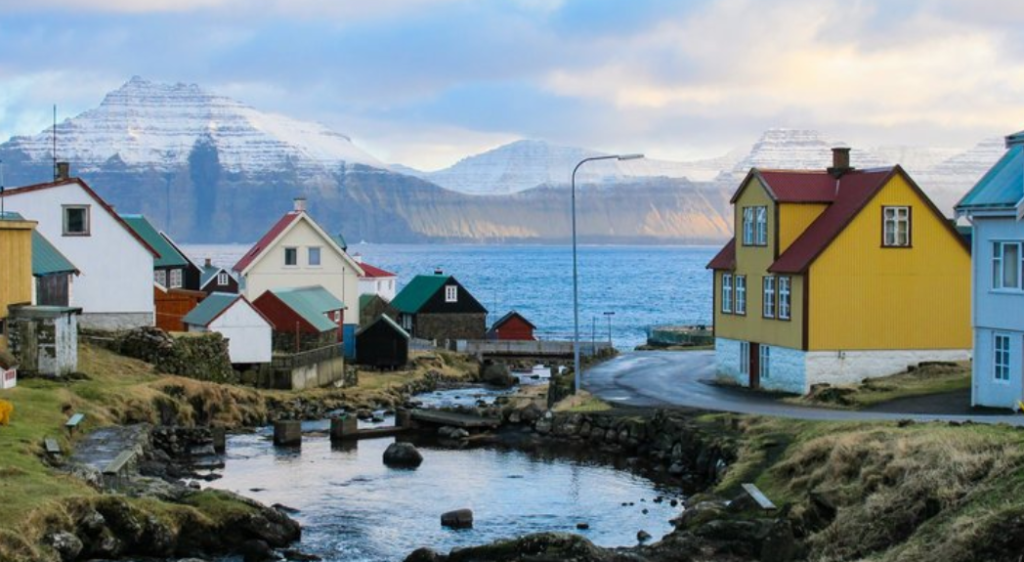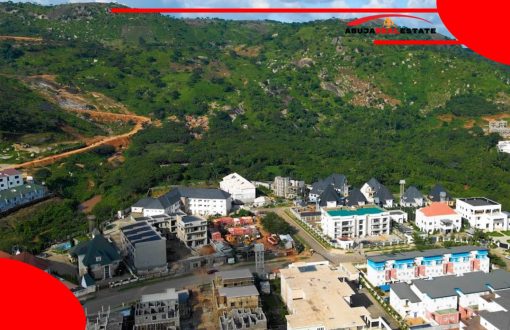Can Foreigners Buy Property in Faroe Islands?

The Faroe Islands, an archipelago situated in the North Atlantic Ocean, is renowned for its breathtaking landscapes, rich culture, and unique living conditions. With growing interest in the islands as a travel destination and potential second home location, many are curious: Can foreigners buy property in the Faroe Islands?
This article delves into the nuances of property ownership in the Faroe Islands for non-residents, exploring the legal framework, regulations, and other important factors. If you’re considering purchasing property here, this guide will provide you with all the essential information you need.
Overview of the Faroe Islands: A Prime Destination for Property Investment
The Faroe Islands are an autonomous territory of Denmark, consisting of 18 islands with a population of about 50,000 people. Known for their dramatic fjords, rugged mountains, and unique blend of Scandinavian and Celtic heritage, the islands offer a tranquil lifestyle that appeals to those seeking peace away from the hustle and bustle of city life.

In recent years, the islands have become increasingly attractive to investors, travelers, and individuals looking for a second home. The islands’ pristine environment, combined with a growing tourism industry and its appeal as a remote working hub, have led many to wonder if it’s feasible for foreigners to invest in property here.
Legal Framework for Foreigners Purchasing Property
The legal framework surrounding property ownership in the Faroe Islands is relatively straightforward but differs from many other countries in Europe. Foreign nationals are allowed to purchase property in the Faroe Islands, but with certain restrictions in place. Let’s break down these regulations:
Property Ownership and Faroe Islands Residency Requirements
Foreigners who are not residents of the Faroe Islands can technically buy property. However, the purchase process is not as simple as it might be in other countries. There is a residency requirement attached to property purchases. Non-residents who wish to buy property in the Faroe Islands must typically demonstrate a clear intention to live in the country. This is particularly the case for agricultural land.
For residential properties, it is generally easier for foreigners to purchase. However, it is important to note that foreigners are typically required to get permission from the Faroese authorities before making such a purchase. This includes proving that the buyer has a clear and long-term connection to the islands, such as plans to live and work there.
Special Considerations for Agricultural Land
Buying agricultural land is more complicated than purchasing residential properties. The Faroese Government maintains strict regulations to ensure that agricultural land is primarily used by local Faroese nationals. This measure ensures that the islands maintain a strong agricultural sector, which is crucial for their economy.
In practice, foreigners wishing to purchase agricultural land must often provide a compelling case for why their purchase would benefit the local community or economy. It is advisable to consult a local attorney or real estate agent to better understand the specific requirements if you are interested in such a purchase.
Key Factors to Consider When Buying Property in Faroe Islands
1. Real Estate Market Trends
The property market in the Faroe Islands is not as developed or fast-moving as in larger European countries. However, it has seen steady growth over the past decade, particularly in urban areas like Tórshavn, the capital city. Due to the islands’ remote location and relatively small population, property options are limited compared to mainland Europe.
The demand for second homes and vacation properties is rising, especially among Scandinavian and European buyers. As such, property prices are expected to continue appreciating slowly but steadily over time.
2. Cost of Living and Property Prices
The Faroe Islands have a relatively high cost of living, with prices for housing, utilities, and food higher than in many European countries. As a result, prospective property buyers should be prepared for significant costs when it comes to purchasing and maintaining a property.
The price range for properties varies based on location, with Tórshavn and other urban areas commanding higher prices than rural or remote areas. It is not uncommon to find properties ranging from 1 million to 4 million DKK (Danish Krone), depending on the size, location, and type of property.
3. Financing Options for Foreigners
Unlike in many other countries, the availability of financing options for foreigners in the Faroe Islands can be somewhat limited. Local banks tend to favor Faroese nationals or residents when it comes to property loans. Non-residents may find it difficult to secure a mortgage unless they meet certain criteria, such as a high down payment or a proven ability to generate income from the property.
In some cases, foreigners may need to rely on financing from their home country or secure private financing to fund their purchase. This is something to keep in mind when planning your property investment.
The Process of Buying Property in the Faroe Islands
Step 1: Find a Suitable Property
The first step in the property buying process is finding a property that meets your needs and budget. Local real estate agents can help with this process, offering insights into available properties and assisting with negotiations.
Many properties in the Faroe Islands are listed through local real estate websites or agents. It is a good idea to explore these platforms to get a sense of the types of properties available and their respective prices.
Step 2: Secure Legal Permission
As mentioned earlier, non-residents need to secure permission from the Faroese authorities to purchase property. This is a crucial step in the process, and failure to obtain the necessary approval can result in the cancellation of the property transaction.
In addition to permission from the government, you may also need to hire a lawyer familiar with Faroese property law to assist in drafting contracts, reviewing property deeds, and ensuring that the transaction complies with all local regulations.
Step 3: Conduct Due Diligence
Before purchasing any property, it’s essential to conduct due diligence. This includes ensuring that the property has clear title (free from legal disputes or liens), and understanding the full scope of costs involved in maintaining the property, such as taxes, maintenance, and utilities.
Step 4: Complete the Transaction
Once you have secured legal permission and completed due diligence, you can move forward with the transaction. This involves signing the sales contract, paying the agreed-upon amount (including taxes and fees), and registering the property with the appropriate Faroese authorities.
The entire process can take several months, depending on the complexity of the transaction and any required permissions. Working with experienced local professionals will help streamline the process and ensure everything is done according to local law.
Taxes and Fees for Property Owners
1. Property Tax
In the Faroe Islands, property owners are required to pay annual property taxes based on the value of their property. This tax is typically low compared to other European countries but should still be factored into your financial planning.
2. Transfer Tax
When purchasing property, buyers must pay a transfer tax, which is generally around 1% of the property’s purchase price. This fee is one of the costs involved in buying property and should be considered when budgeting for the purchase.
3. Other Costs
Other potential costs include notary fees, legal fees, and registration fees, all of which should be factored into the total cost of purchasing property. These costs can vary depending on the type and location of the property.
Pros and Cons of Buying Property in the Faroe Islands
Pros
- Stunning Natural Beauty: Owning property in the Faroe Islands means living surrounded by unparalleled natural beauty, with lush green valleys, dramatic cliffs, and peaceful fjords.
- Peaceful Lifestyle: The islands offer a calm, quiet lifestyle, far removed from the noise and stress of urban life, making them ideal for those seeking peace.
- Growing Real Estate Market: With increasing interest from foreign investors, the real estate market is slowly growing, and property values may increase in the future.
Cons
- Limited Financing Options: Foreigners may find it challenging to secure financing from local banks, making the purchase process more complex and potentially expensive.
- Residency Requirements: Foreigners must meet certain residency requirements and prove their connection to the Faroe Islands to buy property, which can be a barrier for some buyers.
- High Living Costs: While the cost of property may not be high in comparison to larger European cities, the overall cost of living in the Faroe Islands can be expensive.
Conclusion
Buying property in the Faroe Islands as a foreigner is certainly possible but requires a good understanding of local laws, residency requirements, and the property market. While it offers a unique and tranquil lifestyle surrounded by natural beauty, prospective buyers must carefully consider the challenges of limited financing options and residency restrictions. By working with local professionals and ensuring you meet all legal requirements, you can make the process smoother and enjoy all the benefits that property ownership in the Faroe Islands has to offer.


